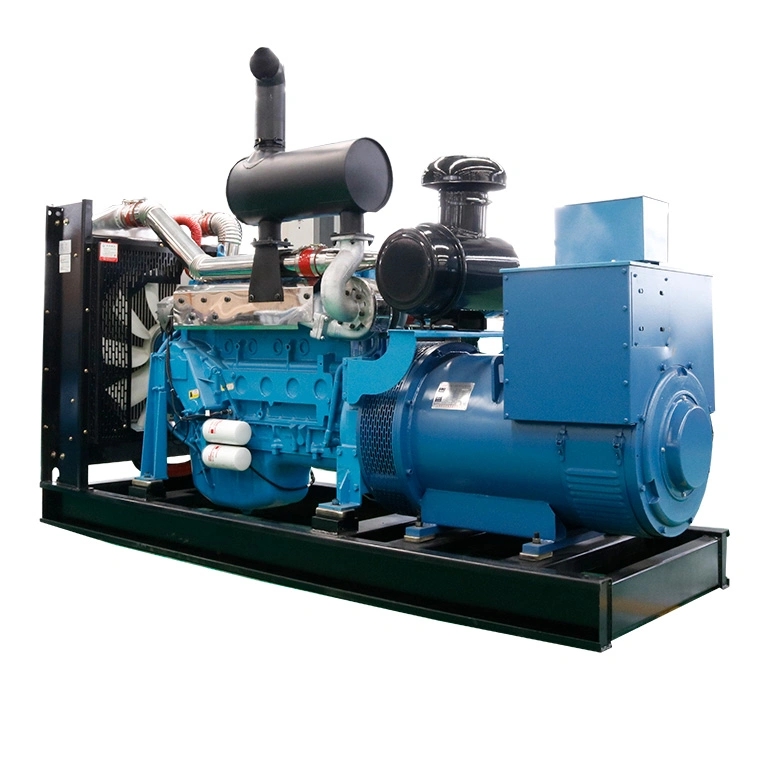https://www.lkpowerplant.com/400kw/
In recent years, the world has witnessed a significant shift towards the development and implementation of smart grid technologies. A smart grid is an advanced electrical grid system that leverages digital communication and automation to efficiently manage electricity generation, distribution, and consumption. As renewable energy sources such as solar and wind power become increasingly integrated into the grid, there is a growing need for reliable backup power solutions to ensure grid stability and reliability. Diesel generators have emerged as a key technology in smart grid applications, providing backup power, grid support, and energy management capabilities. This article explores the role of diesel generators in smart grid applications, highlighting their benefits, challenges, and future prospects.
Benefits of Diesel Generators in Smart Grid Applications
Diesel generators offer several key benefits when integrated into smart grid applications. One of the primary advantages of diesel generators is their reliability and robustness. Diesel engines are known for their durability and ability to operate continuously for extended periods, making them well-suited for providing backup power during grid outages or emergencies. This reliability is crucial for maintaining grid stability and ensuring uninterrupted power supply to critical infrastructure such as hospitals, data centers, and telecommunications networks.
Another important benefit of diesel generators in smart grid applications is their flexibility and scalability. Diesel generators can be easily deployed in various locations to provide backup power where needed, whether at a remote off-grid site or as part of a distributed generation system within an urban area. This flexibility allows grid operators to quickly respond to changing demand conditions and optimize the use of available resources to enhance grid resilience and reliability.
Furthermore, diesel generators offer fast start-up times and rapid response capabilities, enabling them to provide backup power within seconds of a grid failure. This quick response is essential for preventing disruptions to sensitive equipment and minimizing downtime in critical applications. Diesel generators can also be integrated with advanced control systems and energy management software to optimize their performance and maximize fuel efficiency, further enhancing their value in smart grid applications.
Challenges and Considerations for Diesel Generators in Smart Grid Applications
While diesel generators offer numerous benefits for smart grid applications, there are also some challenges and considerations that need to be addressed. One of the primary concerns associated with diesel generators is their environmental impact, particularly in terms of emissions and air quality. Diesel engines produce pollutants such as nitrogen oxides (NOx), particulate matter (PM), and carbon monoxide (CO) that can contribute to air pollution and have adverse effects on public health and the environment.
To mitigate these environmental concerns, grid operators and policymakers are increasingly focusing on implementing emission control technologies and regulatory measures to reduce the impact of diesel generators on air quality. This includes the use of advanced exhaust aftertreatment systems, cleaner fuels such as biodiesel and synthetic diesel, and emission monitoring and reporting requirements to ensure compliance with environmental regulations.
Another challenge for diesel generators in smart grid applications is their reliance on fossil fuels, particularly diesel fuel. As the world transitions towards a more sustainable energy future, there is a growing emphasis on reducing greenhouse gas emissions and promoting renewable energy sources to mitigate climate change. While diesel generators play a crucial role in providing backup power and grid support services, efforts are underway to explore alternative fuel options such as natural gas, biogas, hydrogen, and battery storage to decarbonize the power generation sector and achieve a more sustainable energy mix.
Future Prospects and Innovations for Diesel Generators in Smart Grid Applications
Despite the challenges and considerations associated with diesel generators, there are several promising developments and innovations that are shaping the future of diesel generator technology in smart grid applications. One of the key trends in the industry is the integration of advanced digital control and monitoring systems to enhance the performance, efficiency, and reliability of diesel generators. By leveraging real-time data analytics, predictive maintenance algorithms, and remote monitoring capabilities, grid operators can optimize the operation of diesel generators, identify potential issues before they occur, and minimize downtime and maintenance costs.
Another area of innovation for diesel generators in smart grid applications is the adoption of hybrid power systems that combine diesel generators with renewable energy sources and energy storage solutions. By integrating solar panels, wind turbines, or battery storage systems with diesel generators, grid operators can enhance the overall efficiency and sustainability of the power generation system, reduce fuel consumption and emissions, and improve grid resiliency and reliability. Hybrid power systems offer a flexible and cost-effective approach to meeting the growing energy demands of smart grid applications while reducing environmental impact and promoting renewable energy integration.
Furthermore, advancements in engine technology, fuel efficiency, and emissions control are driving the development of next-generation diesel generators that are cleaner, more efficient, and environmentally friendly. Manufacturers are investing in research and development to design and produce diesel engines that meet stringent emission standards, improve fuel economy, and reduce noise levels to enhance the overall performance and sustainability of diesel generators in smart grid applications.
Conclusion

In conclusion, diesel generators play a crucial role in smart grid applications by providing backup power, grid support, and energy management capabilities to enhance grid stability, reliability, and resilience. Despite the environmental challenges associated with diesel generators, ongoing innovations and advancements in technology are driving the development of cleaner, more efficient, and sustainable diesel generator solutions for smart grid applications. By integrating digital control systems, hybrid power systems, and next-generation engine technologies, diesel generators are well-positioned to continue serving as a reliable and essential component of the modern smart grid infrastructure. As the energy landscape evolves and transitions towards a more sustainable future, diesel generators will remain a valuable asset in ensuring the efficient and reliable operation of smart grids around the world.
